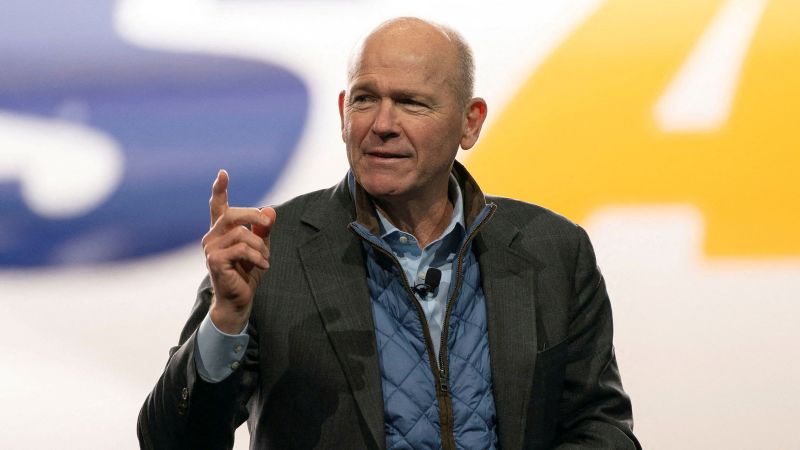Boeing CEO Dave Calhoun has been focusing on streamlining costs to improve the company’s financial standing during his four years in charge. However, it has been revealed that Calhoun and three other top executives received an extra half-million dollars worth of personal private jet travel on the company’s expense that had been improperly recorded as business travel. This discovery was made during an internal review prompted by a Wall Street Journal investigation into Boeing executives’ private jet usage.
Boeing requires its CEO to use private jets for both business and personal travel for security reasons. While using the jet for business purposes is considered a perk of the job, using it for personal vacations may be subject to taxes as it counts as taxable income. The IRS recently announced plans to crack down on executives who have illegally written off personal trips as business expenses, signaling a broader issue in Corporate America. Calhoun accrued $979,000 in personal air travel expenses over the last three years, as disclosed by Boeing.
Amidst Boeing’s struggles in 2024, there is also the looming threat of a potential strike by its largest labor union, consisting of 30,000 Seattle-area machinists. The union’s 10-year contract is set to expire in September, and negotiations have already begun. The machinists are seeking a 40% pay increase over three years and a seat on the board of directors. This puts Boeing’s leadership in a challenging position, given Calhoun’s significant pay raise and retirement package, as well as questions about his personal jet usage and residences.
The union’s president, Jon Holden, emphasized the importance of the machinists in saving the company from its current challenges. With multiple federal probes into Boeing’s operations and recent incidents causing disruption, the machinists feel the weight of responsibility in ensuring the company’s success. Negotiations with the union are crucial for Boeing to maintain a harmonious relationship with its employees and address their demands for fair compensation and representation.
The ongoing issues at Boeing, including financial struggles, executive perks, and potential labor disputes, highlight the complex challenges facing the aerospace giant. Balancing the company’s financial stability with fair treatment of employees and ethical leadership practices is essential for Boeing to navigate through these turbulent times. The outcome of negotiations with the labor union and the company’s response to criticisms regarding executive compensation and corporate governance will significantly impact Boeing’s future trajectory and reputation in the industry.
Ultimately, how Boeing addresses these internal challenges and external pressures will determine its success in the long term. Prioritizing transparency, accountability, and fair treatment of employees will be crucial for Boeing to regain trust and stability in the aerospace market. As the company navigates through uncertainties and disruptions, strong leadership and effective communication will be vital in guiding Boeing towards a more sustainable and resilient future.


